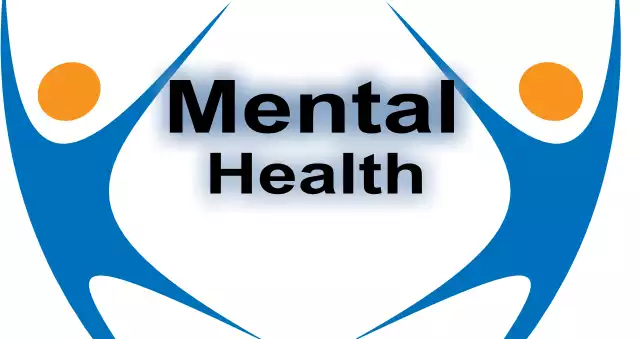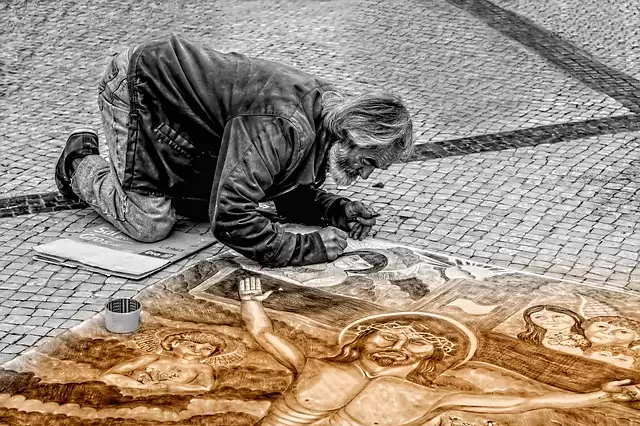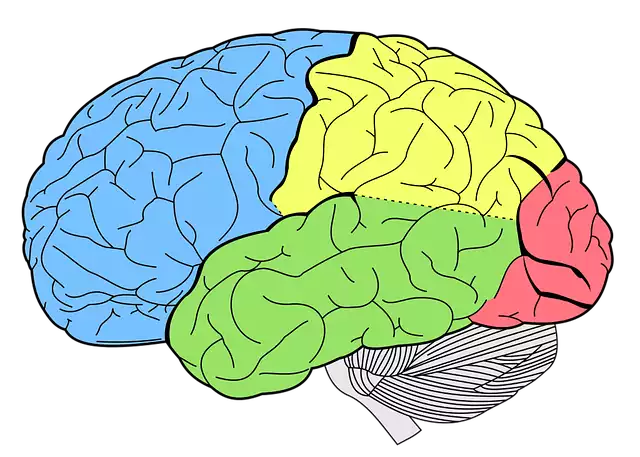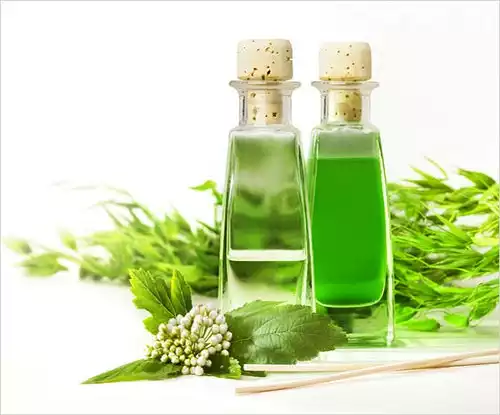Art For Mental Health Recovery
If you are struggling with mental health issues, you may have tried various methods to cope with your symptoms.
While therapy and medication are often effective, there is another powerful tool that can aid in your recovery.
Art has the ability to tap into our deepest emotions and can serve as a form of expression and release.
It has been used for centuries as a means of communication, healing, and self-discovery. In recent years, the therapeutic benefits of art have been increasingly recognized and utilized in mental health treatment.
In fact, many mental health professionals now incorporate art therapy into their practices. Art is powerful for mental health recovery. It helps people heal, discover themselves, and find hope.
Art can help you heal from mental health issues like anxiety, depression, trauma, and more. It can be a useful and effective way to support your recovery.
Table of Contents Art For Mental Health Recovery
Unlock your creativity and heal
Engaging in artistic expression can serve as a powerful tool for your mental health recovery.
Art can unlock creativity and help in healing.
Art gives you a safe space to express yourself and process emotions. It allows you to explore your feelings in a special and relieving way.
Creating art, such as painting, drawing, or writing, can help you connect with yourself, understand your thoughts and feelings, and promote personal growth and self-discovery.
Being creative helps you understand yourself better, feel more confident, and find comfort in artistic expression.
Art has the ability to surpass words and help with mental health recovery. It allows you to express and deal with complex emotions, leading you towards healing and well-being.
Engage in therapeutic artistic activities.
Engaging in therapeutic artistic activities can be a valuable addition to your mental health recovery journey.
Engaging in creative activities like painting, sculpting, or coloring can help you relax and reflect.
Creating art helps you stay present by turning your thoughts and emotions into something you can touch.
This process helps you release stress, reduce anxiety, and gain control over your emotions.
Engaging in artistic activities helps express yourself without using words, which allows you to explore your inner world more deeply.
Art has a powerful effect on mental health recovery. It helps you express yourself, heal emotionally, and grow personally. It provides a creative way to navigate the complexities of your well-being.
Art encourages self-expression and reflection.
Incorporating art into your mental health recovery journey can serve as a powerful tool for self-expression and reflection.
When you engage in artistic activities, you have the opportunity to communicate your thoughts and emotions in a non-verbal manner, allowing for a deeper exploration of your inner world.
The act of creating art encourages you to tap into your creativity and embrace your unique perspective.
As you immerse yourself in the artistic process, you may discover hidden aspects of yourself and gain a greater understanding of your emotions.
Through art, you can visually express your journey, aspirations, and challenges, fostering a sense of empowerment and personal growth.
The Power Of Art For Mental Health Recovery lies in its ability to provide a safe and transformative space for self-expression, allowing you to navigate your mental well-being with creativity and introspection.
Explore emotions through visual expression.
One way to harness The Power Of Art For Mental Health Recovery is by exploring emotions through visual expression.
This process allows you to delve into the depths of your emotions and transform them into visual representations.
Through the use of colors, shapes, and various artistic techniques, you can externalize your innermost feelings, bringing them to the surface and giving them a tangible form.
By creating visual representations of your emotions, you are not only acknowledging their existence but also gaining a deeper understanding of their impact on your mental well-being.
This practice allows you to process and release difficult emotions, offering a sense of catharsis and relief.
Additionally, as you engage in visual expression, you may uncover new insights and perspectives on your emotional experiences, leading to personal growth and healing.
Ultimately, exploring emotions through visual expression is a powerful tool for self-exploration and emotional well-being, fostering a greater sense of peace and balance in your mental health journey.
Tap into your inner strengths.
In the journey of mental health recovery, it is essential to tap into your inner strengths.
Acknowledging and utilizing your unique capabilities can contribute significantly to your overall well-being.
By recognizing your strengths, you empower yourself to overcome challenges and find resilience in difficult times.
Reflect on your past achievements, moments of personal growth, and areas where you have excelled.
These experiences serve as reminders of your inherent abilities and can inspire you to navigate through obstacles with confidence and determination.
Cultivating a positive mindset and self-belief in your capabilities can help you face adversity head-on and create a solid foundation for your mental health recovery.
Embrace the power within you and harness your inner strengths to pave the way towards a brighter and more fulfilling future.
Boost self-esteem and confidence.
Developing a strong sense of self-esteem and confidence is crucial in the process of mental health recovery.
Engaging in creative activities, such as art, can be a powerful tool to cultivate these qualities.
Through art, you have the opportunity to express yourself, embrace your uniqueness, and celebrate your individuality.
The act of creating art allows you to tap into your inner creativity and explore new possibilities, boosting your self-esteem as you witness your own abilities and talents come to life.
Additionally, the process of creating art can serve as a form of self-care and self-expression, enabling you to release emotions and thoughts in a safe and therapeutic manner.
As you engage in art, you may find yourself becoming more confident in your abilities to express yourself authentically and assertively.
The Power Of Art For Mental Health Recovery lies in its ability to uplift, inspire, and empower individuals, providing a powerful avenue for personal growth and self-discovery.
Art offers a healthy outlet.
Engaging in art offers a healthy outlet for individuals on their journey towards mental health recovery.
With the power of art for mental health recovery, you can channel your emotions, thoughts, and experiences into creative expressions.
Through various art forms such as painting, drawing, or sculpting, you can release pent-up feelings, find solace, and gain a sense of control over your emotions.
Art provides a non-verbal means of communication, allowing you to express yourself in ways that may be difficult to put into words.
This outlet enables you to explore and process your emotions, fostering self-reflection and self-awareness.
Moreover, engaging in art can act as a form of relaxation and stress relief, offering a respite from the challenges of daily life.
By immersing yourself in the creative process, you can experience a sense of flow and mindfulness, promoting a state of calm and overall well-being.
Enhance communication and social skills.
Developing effective communication and social skills is another significant benefit that comes from embracing the power of art for mental health recovery.
Through artistic expression, you can learn to convey your thoughts, emotions, and experiences to others in a unique and engaging manner.
Art provides a platform for self-expression and opens up avenues for connecting with others on a deeper level.
By participating in art-based activities, such as group art therapy sessions or collaborative art projects, you can enhance your ability to communicate and interact effectively with others.
These experiences facilitate the development of active listening skills, empathy, and understanding, as you engage in meaningful dialogue and exchange ideas within a supportive and non-judgmental environment.
In addition, the social aspects of art-related activities provide opportunities to build relationships, foster a sense of belonging, and strengthen social connections, ultimately contributing to your overall mental well-being and personal growth.
Find peace and calmness within.
Engaging in the power of art for mental health recovery can also offer a pathway to finding peace and calmness within yourself.
Through artistic expression, you are able to tap into your inner creativity, allowing you to explore and connect with your emotions on a deeper level.
Whether it’s through painting, drawing, or sculpting, the act of creating art can serve as a form of meditation, helping to quiet the mind and promote a sense of inner stillness.
As you immerse yourself in the artistic process, you may find that worries and stressors fade away, replaced by a sense of tranquility and serenity.
The act of creating art can be a cathartic experience, providing a safe outlet for emotions and promoting self-reflection.
By embracing the power of art for mental health recovery, you can cultivate a greater sense of peace and calmness within yourself, fostering overall well-being and resilience in the face of life’s challenges.
Embrace the power of art.
Allow yourself to fully embrace the transformative power of art as you embark on your mental health recovery journey.
By engaging in various forms of artistic expression, you can tap into the healing benefits that art offers.
Through painting, drawing, or even photography, you have the opportunity to channel your emotions and experiences into a visual representation.
This process allows you to gain a deeper understanding of yourself and the challenges you may be facing.
The power of art for mental health recovery lies in its ability to provide a sense of release, enabling you to express and process emotions that may otherwise be difficult to articulate.
As you immerse yourself in the creative process, you will discover newfound clarity and insight, as well as a greater sense of self-awareness.
Embrace the power of art as a tool for your mental health recovery, and unlock the potential for personal growth and emotional well-being.
Overall, incorporating art into your mental health recovery journey can have a profound impact on your well-being.
Whether it’s through painting, drawing, music, or any other form of creative expression, the power of art lies in its ability to help you process and express emotions, reduce stress and anxiety, and improve overall mental health.
As a professional, I highly encourage you to explore the therapeutic benefits of art and incorporate it into your recovery plan.
You may be surprised by the positive impact it can have on your journey towards mental health wellness.
FAQ
How does engaging in artistic activities, such as painting or writing, contribute to mental health recovery?
Engaging in artistic activities, such as painting or writing, can greatly contribute to your mental health recovery.
By expressing yourself through art, you tap into a creative outlet that allows you to process and release emotions.
It provides a sense of control and empowerment, fostering feelings of self-worth and accomplishment.
Art also promotes mindfulness and relaxation, reducing stress and anxiety.
Through artistic expression, you can explore and understand your thoughts and experiences, leading to greater self-awareness and personal growth.
Ultimately, engaging in artistic activities helps to improve your overall well-being and aids in your journey towards mental health recovery.
What specific mental health conditions have been shown to benefit from art therapy or art-based interventions?
You’ll be surprised to learn that various mental health conditions have shown significant benefits from art therapy or art-based interventions.
Conditions such as depression, anxiety, trauma-related disorders, and even eating disorders have been positively impacted by engaging in art therapy.
Through the creative process, you can explore and express your emotions, thoughts, and experiences in a safe and non-verbal manner.
Art therapy allows you to tap into your inner world, fostering self-awareness, self-expression, and emotional healing.
Whether it’s painting, drawing, or sculpting, art can be a powerful tool in your journey towards better mental well-being.
Can the power of art be harnessed as a form of self-expression for individuals struggling with mental health challenges?
Yes, you can harness the power of art as a form of self-expression to cope with mental health challenges.
Art allows you to express your thoughts, emotions, and experiences in a non-verbal way, providing a safe outlet for self-expression.
Through painting, drawing, or any other artistic medium, you can visually communicate your struggles, hopes, and dreams.
Art can help you process and make sense of your emotions, providing a therapeutic release.
It can also foster self-awareness and promote healing, allowing you to gain a sense of control and empowerment.
Ultimately, art can serve as a powerful tool to support your mental well-being.
Are there any specific art forms or techniques that have been found to be particularly effective in promoting mental well-being?
In exploring ways to promote mental well-being, various art forms and techniques have shown promising results.
One such technique is mindfulness-based art therapy, where you engage in art activities while focusing on the present moment.
This practice helps enhance self-awareness and decrease stress.
Another effective art form is expressive writing, which allows you to express and process emotions through writing.
Creating visual art, such as painting or drawing, can also serve as a cathartic outlet for emotions and promote relaxation.
Ultimately, the effectiveness of art forms in promoting mental well-being varies from person to person, so it’s important to find the technique that resonates with you.
How can art be used as a tool for raising awareness and reducing stigma surrounding mental health issues?
You can use art as a powerful tool to raise awareness and reduce stigma around mental health issues.
By creating thought-provoking paintings or sculptures, you can challenge societal misconceptions and encourage empathy.
Through photography or film, you can capture the raw emotions and struggles faced by individuals with mental health conditions, fostering understanding and compassion.
Writing poetry or songs can give a voice to those who feel silenced, amplifying their experiences and generating empathy.
Additionally, organizing art exhibitions or performances dedicated to mental health can spark important conversations and promote open dialogue.
Art has the ability to touch hearts and minds, making it a potent instrument for combating stigma and promoting acceptance.







